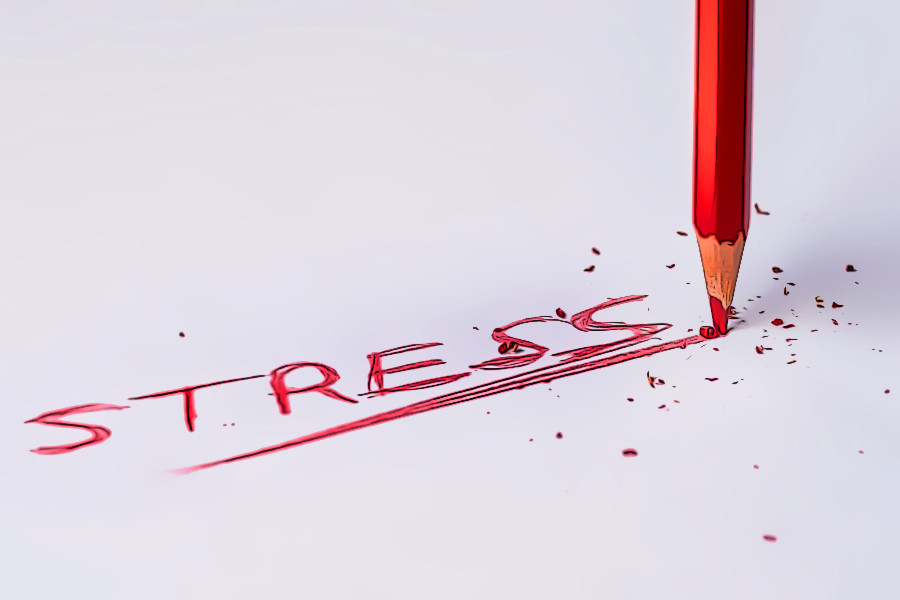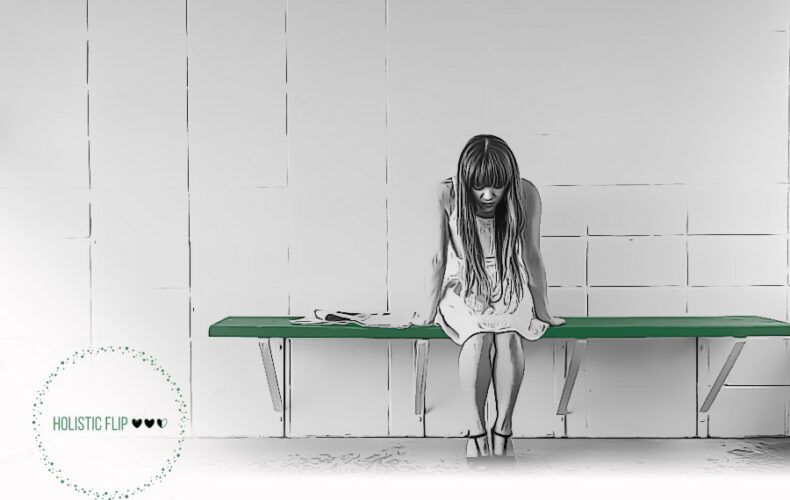Relieve Stress & Anxiety Naturally: Tips & Techniques
Contents:
Understanding the Causes of Stress and Anxiety
The Benefits of Relieving Stress and Anxiety Naturally
Simple Breathing Techniques for Instant Stress Relief
The Power of Mindfulness and Meditation
Physical Activities to Reduce Stress and Anxiety
The Importance of Sleep for Mental Health
The Benefits of a Healthy Diet
Herbs and Supplements for Stress and Anxiety Management
The Role of Support Systems in Stress and Anxiety Relief

Introduction
Stress and anxiety are two common mental health conditions that can impact individuals of all ages and backgrounds. Stress occurs when a person perceives a situation or event as a threat, causing the body to respond with a release of hormones such as cortisol and adrenaline. Over time, this response can lead to physical and mental symptoms such as headaches, fatigue, irritability and difficulty concentrating.
Anxiety, on the other hand, is characterized by feelings of worry, nervousness and fear, often without a specific cause. Symptoms of anxiety can include sweating, rapid heart rate, muscle tension and trouble sleeping. Both stress and anxiety can have serious consequences on an individual’s mental and physical health, including increased risk of depression, heart disease and sleep disorders. Understanding what stress and anxiety are and their symptoms, is the first step in learning how to manage and relieve these conditions naturally.
Understanding the Causes of Stress and Anxiety
Stress and anxiety can be caused by a variety of factors, including work-related stress, financial worries, and relationship problems. Work-related stress can be caused by a high-pressure job, long hours, and tight deadlines, leading to feelings of overwhelm and burnout. Financial worries, such as living paycheck to paycheck or having mounting debt, can also lead to feelings of stress and anxiety. Relationship problems, such as conflicts with friends and family, can also trigger feelings of worry and nervousness.
In addition to these external triggers, genetics and past traumatic experiences can also play a role in the development of stress and anxiety. People with a family history of mental health conditions are more likely to experience this, while past traumatic experiences, such as childhood abuse or neglect, can also increase the likelihood of developing these conditions.
It is important to understand the causes of stress and anxiety in order to effectively manage and relieve these conditions. By identifying the triggers, individuals can work to eliminate or mitigate these stressors and improve their mental health. Additionally, by recognizing the role of genetics and past traumatic experiences, individuals can seek professional help to address the underlying causes.
The Benefits of Relieving Stress and Anxiety Naturally
Natural solutions can bring a wealth of benefits to your overall health and well-being. Here are five of the top benefits:
- Improved Mental Clarity: When you are under stress, your mind can become cluttered, making it difficult to focus or think clearly. Practicing stress-relieving techniques such as mindfulness, exercise, and healthy sleep habits can help clear your mind and improve mental clarity.
- Increased Resilience: Anxiety can leave you feeling overwhelmed and unable to handle challenges in your life. By practicing natural techniques, you can build up your resilience and better handle stressors as they arise.
- Stronger Immune System: Continuous negative feelings can take a toll on your immune system, leaving you more susceptible to illness. By reducing stress and anxiety through natural methods, you can boost your immune system and protect yourself from illness.
- Better Sleep: It may be difficult to fall or stay asleep. By practicing relaxation techniques, such as mindfulness and deep breathing, you can improve your sleep and leave you feeling refreshed and rejuvenated.
- Improved Mood: Chronic stress and anxiety can leave you feeling irritable, sad and hopeless. By being proactive and practising natural methods, you can improve your mood and boost your overall happiness and well-being.
While medication may offer quick relief from symptoms, it is important to understand that it is not a long-term solution. Over-reliance on medication can lead to a range of negative effects including physical dependence, side effects and decreased effectiveness over time. In some cases, medication can even make anxiety symptoms worse. Additionally, medication can interact with other medications and have negative impacts on overall health.
It is important to work with your healthcare provider to determine the best approach for managing stress and anxiety, which may include a combination of medication and natural techniques.
Simple Breathing Techniques for Instant Stress Relief
Simple breathing techniques can be an effective and accessible way to relieve stress and anxiety in a matter of minutes. Here are a few to get you started:
4-7-8 Breathing Technique
One of the most popular breathing exercises is the 4-7-8 breathing technique, which involves inhaling for 4 seconds, holding the breath for 7 seconds, and exhaling for 8 seconds. This technique has been shown to slow down the heart rate and promote relaxation, making it a great option for reducing stress and anxiety in the moment.
Belly Breathing Technique
A second effective breathing exercise is the belly breathing technique, which involves focusing on breathing deeply into the belly and relaxing the muscles as you exhale. This technique can be done anywhere, anytime and can help to calm any negative feelings.
Alternate Nostril Breathing
Another simple breathing technique is alternate nostril breathing, which involves using your fingers to alternate the flow of air through each nostril. This technique can help to balance the breath and calm the nervous system. Additionally, mindful breathing, which involves paying attention to the breath and noticing the sensation of each inhale and exhale, can be a powerful tool.
The Power of Mindfulness and Meditation
Mindfulness is a mental state achieved by focusing one’s awareness and becoming grounded in the present moment. Practicing mindfulness can help you manage your thoughts, emotions and physical sensations, reducing the intensity of negative thoughts and emotions.
There are many different mindfulness techniques that can be used to manage stress and anxiety. One of the most popular forms of mindfulness is meditation. Meditation is a practice that involves focusing the mind and controlling one’s thoughts and emotions.
To start a mindfulness practice, you can try guided meditations or mindful breathing exercises. Guided meditations are audio recordings that lead individuals through a meditation, while mindful breathing exercises, involve focusing on the breath and the sensations in the body. This can help to slow down the heart rate and reduce muscle tension.

Physical Activities to Reduce Stress and Anxiety
Physical activity is a powerful tool for reducing stress and anxiety. Exercise has been shown to release endorphins, the body’s natural feel-good chemicals. Additionally, exercise can help to improve sleep, boost self-esteem and reduce symptoms of depression and anxiety.
Some of the most popular physical activities include:
Exercise: Regular exercise, such as running, weightlifting or calisthenics, can help to reduce stress and anxiety by releasing endorphins and improving overall physical and mental health.
Yoga: Yoga is a physical practice that involves stretching and meditation. It can help to reduce muscle tension, improve flexibility and promote feelings of calm and relaxation.
Tai Chi: Tai Chi is a slow-moving martial art that involves flowing movements and deep breathing. It has been shown to reduce stress and improve balance.
The Benefits of a Healthy Diet
Diet plays a crucial role in managing stress and anxiety. Certain foods can have a significant impact on mood and well-being, making it important to choose nutrient-dense, plant-based options.
Eating a healthy, vegan diet can help individuals get the nutrients they need to support overall health, including important vitamins, minerals and antioxidants. These nutrients are critical for maintaining a healthy brain and nervous system, which play a crucial role in managing stress and anxiety. Eating a balanced, plant-based diet can help regulate mood, energy levels and cognitive function, making it an important piece of the puzzle.
Some of the best foods for reducing stress and anxiety include:
- Leafy greens: Leafy greens, such as spinach and kale are rich in calcium, vitamin C and magnesium and are essential for good mental health.
- Nuts: Nuts, such as almonds and walnuts are rich in magnesium and healthy fats that can help to reduce stress and improve mood.
- Berries: Berries such as blueberries and raspberries are high in antioxidants and can help to reduce oxidative stress, which can contribute to anxiety and depression.

The Importance of Sleep for Mental Health
Sleep plays a critical role in mental health and is essential for reducing stress and anxiety. Poor sleep can exacerbate symptoms of and contribute to feelings of irritability, fatigue and difficulty concentrating. On the other hand, good sleep can help to improve mood, reduce stress levels and improve mental clarity.
During sleep the body is able to repair itself, reduce stress hormones and consolidate memories. Here are some tips to help you get a better night’s sleep:
- Avoid caffeine: Caffeine can interfere with sleep, so it is best to avoid consuming it in the evening.
- Establish a bedtime routine: Having a bedtime routine can help to prepare your mind and body for sleep. Try to go to bed and wake up at the same time every day and avoid using electronic devices before bed as the blue light can interfere with sleep. Also, don’t underestimate the power of a good book.
- Create a relaxing sleep environment: Make sure your sleep environment is comfortable and conducive to sleep. This may involve investing in a good quality mattress, reducing exposure to light using blackout curtains and getting rid of that television.
Herbs and Supplements for Stress and Anxiety Management
Herbs and supplements can also play a role in managing stress and anxiety naturally. Some popular natural remedies include ashwagandha, valerian root, passionflower, and kava.
Ashwagandha is an adaptogenic herb that has been used in traditional Ayurvedic medicine for centuries to help the body cope with stress. It is believed to help regulate cortisol levels, the hormone responsible for stress, and improve overall mental well-being.
Valerian root is another popular natural remedy. It has been used for centuries as a sleep aid and to relieve feelings of tension and nervousness.
Passionflower has been used to treat anxiety and insomnia. It is believed to work by increasing levels of GABA, a neurotransmitter that helps to regulate anxiety.
Kava is a plant native to the South Pacific that has been used for centuries to relieve stress and anxiety. It works by relaxing the muscles and promoting feelings of calm and well-being.
It is important to note that herbs and supplements can interact with other medications and may have side effects. Before taking any natural remedies, it is important to talk to your healthcare provider to determine if it is safe for you and to ensure that you are taking the correct amount.

The Role of Support Systems in Stress and Anxiety Relief
Having a strong support system can also play a crucial role in your success. A support system can provide a sense of community and help you feel less isolated and alone. This can help you to manage stress and anxiety more effectively.
Friends and family members can provide emotional support and a listening ear when you need it. Joining a support group can also be beneficial, as it can connect you with others who are going through similar experiences.
In some cases, therapy may also be a helpful tool in managing stress and anxiety. A therapist can provide guidance and support, and help you to identify and address the underlying causes.
Tips for Long-Term Stress and Anxiety Management
In addition to the natural remedies and support systems discussed above, there are other practical tips you can use to manage stress and anxiety in the long-term. These include:
- Setting realistic goals: It is important to set achievable goals and manage your expectations. This will reduce the chance of you becoming overwhelmed.
- Maintaining a healthy lifestyle: Eating a healthy diet, getting regular exercise and getting enough sleep can all help to reduce stress and improve mental well-being.
- Learning stress management techniques: Practicing stress management techniques, such as deep breathing, mindfulness and meditation can help you to better cope with the inevitable challenges of life.
Seeking Professional Help
If you are experiencing severe feelings that are affecting your daily life, it is important to seek professional help. There are a number of resources available to help you find the support you need, including:
- Hotlines: National mental health hotlines can provide immediate support and resources.
- Therapy: Talking to a therapist can provide guidance and support in managing stress and anxiety.
- Support groups: Joining a support group can connect you with others who are going through similar experiences.
Remember, seeking help is a sign of strength not weakness. With the right resources and support you can successfully manage ant negative feelings and improve your overall quality of life.

